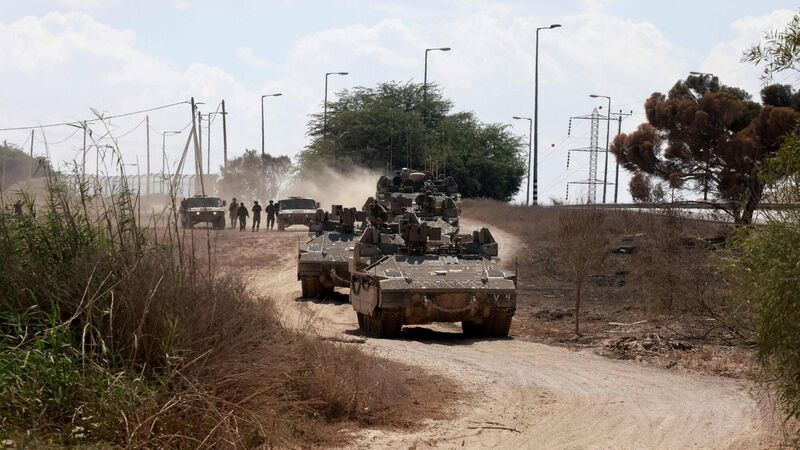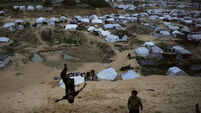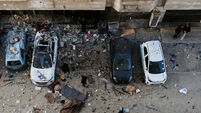Raja Shehadeh: I remember when Palestinians dared to hope for peace. How did it come to this?

Israeli armoured vehicles advance towards the border with the Gaza Strip on Sunday amid ongoing battles between Israel and Hamas. Picture: Menahem Kahana/AFP
















